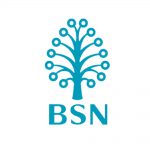Course Info
This course provides students with the knowledge and skills to administer a SQL Server database infrastructure for cloud, on-premises and hybrid relational databases and who work with the Microsoft PaaS relational database offerings. Additionally, it will be of use to individuals who develop applications that deliver content from SQL-based relational databases.
What Will I Learn From This Course?
Plan, deploy and configure Azure SQL offerings
Monitor database performance and tune a database and queries for optimum performance
Plan and configure a High Availability Solution
Pre-requisite
Successful Azure Database Administrators start this role with professional experience in database management and technical knowledge of cloud technologies. Specifically Working with, maintaining, and developing with SQL Server and Experience with Azure, such as deploying and managing resources.
Methodology
Lectures, visual presentations, hands-on demo files and lab exercises, Q&A.
Target Audience
The audience for this course is data professionals managing data and databases who want to learn about administering the data platform technologies that are available on Microsoft Azure. This course is also valuable for data architects and application developers who need to understand what technologies are available for the data platform with Azure and how to work with those technologies through applications.
Course Outline for This Programme
Module 1: The Role of the Azure Database Administrator
• Azure Data Platform Roles
• Azure Database Platforms and Options
• SQL Server Compatibility Levels
• Azure Preview Features
• Provision a SQL Server on an Azure Virtual Machine
• Connect to SQL Server and Restore a Backup
Module 2: Plan and Implement Data Platform Resources
• Deploying SQL Server using IaaS
• Deploying SQL Server using PaaS
• Deploying Open Source Database Solutions on Azure
• Deploy a VM using an ARM template
• Configure resources needed prior to creating a database
• Deploy an Azure SQL Database
• Register the Azure SQL Database instance in Azure Data Studio and validate connectivity
• Deploy PostgreSQL or MySQL using a client tool to validate connectivity
Module 3: Implement a Secure Environment
• Configure Database Authentication
• Configure Database Authorization
• Implement Security for Data at Rest
• Implement Security for Data in Transit
• Implement Compliance Controls for Sensitive Data
• Configure a server-based firewall rule using the Azure Portal
• Authorize Access to Azure SQL Database with Azure Active Directory
• Enable Advanced Data Security and Data Classification
• Manage access to database objects
Module 4: Monitor and Optimize Operational Resources
• Baselines and Performance Monitoring
• Major Causes of Performance Issues
• Configuring Resources for Optimal Performance
• User Database Configuration
• Performance-related Maintenance Tasks
• Isolate CPU Problems
• Use Query Store observe blocking problems
• Detect and correct fragmentation issues
Module 5: Optimize Query Performance
• Understanding SQL Server Query Plans
• Explore Performance-based Database Design
• Evaluate Performance Improvements
• Identify issues with database design AdventureWorks2017
• Isolate problem areas in poorly performing queries in AdventureWorks2017
• Use Query Store to detect and handle regression in AdventureWorks2017
• Use query hints to impact performance in AdventureWorks2017
Module 6: Automation of Tasks
• Setting up Automatic Deployment
• Defining Scheduled Tasks
• Deploy an Azure template from a Quickstart template on GitHub
• Configure notifications based on performance metrics
• Deploy an Azure Automation Runbook (or elastic job) to rebuild indexes on an Azure SQL
• Configuring Extended Events
• Managing Azure PaaS resources Using Automated Methods
Module 7: Plan and Implement a High Availability and Disaster Recovery Environment
• High Availability and Disaster Recovery Strategies
• IaaS Platform and Database Tools for HADR
• PaaS Platform and Database Tools for HADR
• Database Backup and Recovery
• Create an Always On Availability Group
• Enable Geo-Replication for Azure SQL Database
• Backup to URL and Restore from URL
Renganathan Palanisamy has extensive experience in both academic and corporate training arena which enables him to incorporate best practices of both training approach to ensure training delivery is effective and relevant. This is further strengthened by his involvement in various technology related collaboration with renowned players in the industry such as Microsoft, IBM and Oracle. During his service as a Programme Leader in KDU College Sdn Bhd, he was responsible for coordination, collaboration and delivery of courses offered by Sun Microsystems in partnership with Guidance View and as Authorized Sun Education Centre, Oracle under its Workforce Development Programme and Microsoft through its MSDN Academic Alliance Programme.
He started off his early days of involvement in IT industry professing strong inclination towards Java technology and the object oriented design and development practices. He was able to share his in-depth knowledge of the technology via several academic courses and workshops he conducted for students and academic staff alike. Later he ventured into database design and development with Oracle and eventually expanded to include Microsoft SQL Server as well as IBM DB2 and IBM Informix.
Currently his main focus is on delivering Data Management and Business Intelligence tracks which is strongly complemented by his exposure to non-Microsoft related technologies. He has strong understanding of .NET technologies and tools. His knowledge is seeked as evident in his presence at premier events such as Microsoft TechEd and his involvement in SQL PASS local group (SPAN). His technical skills coupled with know-how of training delivery techniques have earned him recognition amongst his peers and attendees of his training sessions. His specialty includes the ability to relate concepts derived from various technologies and ability to ensure smooth transition for trainees migrating to different technology. Resourcefulness is his trademark and this helps enhance the training experience of the attendees.
He is a dynamic and versatile individual. He is willing to take up new challenges to learn and has the ability to apply new skills in a short span of time. Other strengths include good time management, analytical skills, ability to present ideas in innovative ways and most importantly, a sense of responsibility.




